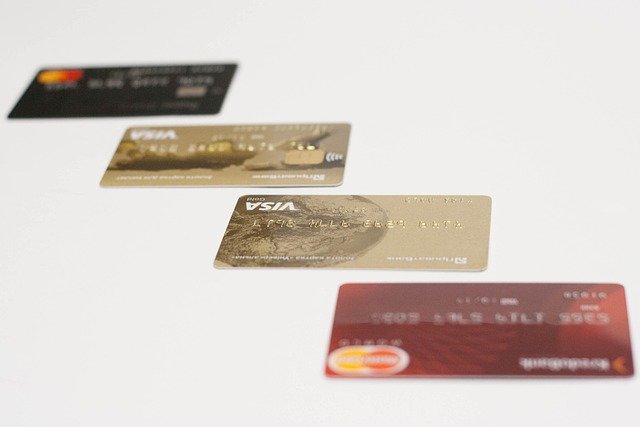Discovering Cash Now Pay Later Online Loans in Germany
In Germany, the cash now pay later concept offers a flexible approach to online loans, allowing individuals to access funds quickly while deferring repayment. This model facilitates immediate financial relief for various needs, such as unexpected expenses or planned purchases. Understanding how this system operates can empower borrowers to make informed decisions regarding their financial commitments. The process is designed to streamline access to credit, ensuring that users can navigate their options with clarity.

Understanding the Concept of Cash Now Pay Later in Germany
The “cash now, pay later” concept represents a specific type of financial arrangement that has gained traction in Germany’s digital lending space. Unlike traditional bank loans that may require extensive paperwork and processing time, these online solutions offer expedited access to funds with repayment scheduled for later dates. In the German market, this concept operates within the country’s robust financial regulations, which prioritize consumer protection while enabling financial innovation.
The German Banking Act (Kreditwesengesetz) and various EU directives govern these lending practices, ensuring transparency in interest rates, fees, and repayment terms. Consumers must understand that while these loans provide immediate liquidity, they still represent financial obligations that must be repaid according to agreed-upon schedules and terms.
Key Features of Online Loans and Their Functionality
Online loans in Germany typically share several distinguishing characteristics that set them apart from conventional banking products. The application process is predominantly digital, allowing borrowers to complete the entire process from application to approval without visiting a physical location. Most platforms offer quick decision-making, often providing preliminary approval within minutes and fund disbursement within 24-48 hours.
German online lenders commonly offer flexible loan amounts, typically ranging from €500 to €50,000, depending on the provider and the borrower’s creditworthiness. Loan terms generally vary from a few months to several years. Interest rates are determined based on creditworthiness, loan amount, and duration. Most platforms employ advanced security measures for data protection, adhering to Germany’s strict privacy regulations and the General Data Protection Regulation (GDPR).
Another notable feature is the transparency required by German financial regulations. Lenders must clearly disclose the annual percentage rate (APR), all associated fees, and the total cost of credit before consumers commit to any agreement.
Steps to Accessing Online Loans in Germany’s Financial Landscape
Accessing online loans in Germany typically follows a structured process designed to balance convenience with regulatory compliance. The journey begins with eligibility verification—borrowers typically need to be at least 18 years old, have German residency, maintain a German bank account, demonstrate regular income, and possess acceptable creditworthiness. Most platforms allow potential borrowers to perform preliminary eligibility checks without affecting their credit scores.
The formal application process generally requires personal identification information, income verification, bank account details, and sometimes proof of employment. German lenders are required to conduct thorough affordability assessments to ensure responsible lending practices. Once submitted, applications undergo automated and sometimes manual review processes.
If approved, borrowers review and digitally sign loan agreements that outline all terms and conditions, including the repayment schedule, interest rates, and any penalties for late payments. Many German online lenders implement a mandatory cooling-off period as required by consumer protection laws, allowing borrowers to cancel the loan agreement within 14 days without penalty. After this period passes or if the borrower explicitly waives this right, funds are typically transferred directly to the borrower’s bank account.
Online Loan Providers and Options in Germany
The German online lending market features several established providers offering various loan products with different terms and features. These range from traditional banks with digital offerings to fintech companies specializing in online lending solutions.
| Provider | Loan Types | Key Features | APR Range (Estimated) |
|---|---|---|---|
| Auxmoney | Personal loans, project financing | Peer-to-peer lending platform, loans up to €50,000 | 2.99% - 16.90% |
| Smava | Comparison platform for various loan options | Compares multiple offers, loans up to €120,000 | 0.69% - 17.49% |
| Creditplus Bank | Personal loans, auto financing | Direct bank offering, loans up to €65,000 | 2.95% - 10.99% |
| N26 | Personal loans | Digital banking with integrated loan offerings | 5.90% - 14.90% |
| Targobank | Personal loans, debt consolidation | Established bank with digital application | 2.99% - 9.99% |
Prices, rates, or cost estimates mentioned in this article are based on the latest available information but may change over time. Independent research is advised before making financial decisions.
Regulatory Considerations for Online Borrowing in Germany
Germany maintains strict regulatory oversight of all lending activities, including online loans. The Federal Financial Supervisory Authority (BaFin) serves as the primary regulator ensuring consumer protection and financial stability. Online lenders must adhere to comprehensive disclosure requirements, including the provision of standardized European Consumer Credit Information forms before contractual commitment.
Interest rate caps exist to prevent predatory lending practices, though specific limits may vary by loan type and amount. The German Civil Code (BGB) outlines borrowers’ rights, including early repayment options, while the German Banking Act (KWG) governs general banking operations and licensing requirements.
For consumers, understanding these regulatory protections is essential. Issues or disputes can be addressed through BaFin’s consumer complaint process or through local consumer protection agencies. As the digital lending landscape continues to evolve, Germany’s regulatory framework adapts to ensure consumer protection remains paramount while enabling financial innovation.
Conclusion
Online “cash now, pay later” loans represent an evolving segment of Germany’s financial landscape that combines immediate liquidity with digital convenience. While these lending options offer flexibility and accessibility that traditional banking may not, they still operate within Germany’s robust regulatory framework designed to protect consumers. Prospective borrowers should carefully consider their financial situation, evaluate various providers, and thoroughly understand all terms and conditions before committing to any online loan arrangement.




